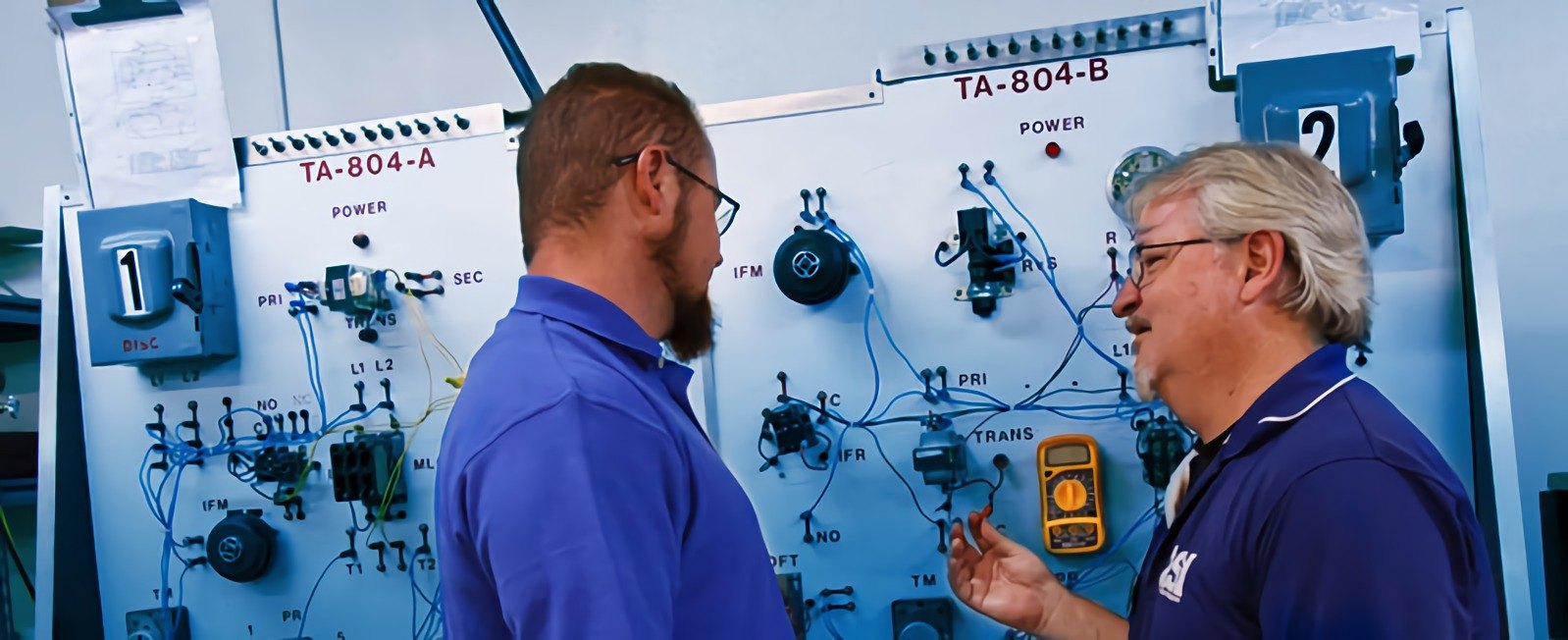RSI is a Great Training Option for Everyone
Learn more about how we can prepare you to advance your career.
Individuals with an interest in mechanical and electrical systems or who have considered a mechanical or electrical career have several options for pursuing an education and training in a rewarding and challenging career field. One option is to pursue a career in an industrial field. Industrial electro-mechanical technicians play an important role in the technical operations of a variety of large-scale and commercial operations, including manufacturing and industrial development as well as research and development. Within these industries, technicians are responsible for numerous tasks.
The Role of an Industrial Electro-Mechanical Technician
In most positions, technicians in industrial electrics and mechanics positions work closely with engineers, researchers, and scientists. Industrial electro-mechanical technicians work on sites like industrial plants, chemical facilities, construction sites, or manufacturing factories. In some cases, technicians are responsible for all inspections and maintenance of equipment and machinery. Product design, product development, and production process implementation are also commonly a part of an industrial electro-mechanical technician’s work.
To handle each of the diverse job functions, technicians with this specialization must have knowledge and training in a number of different areas. In addition to general knowledge about electrical systems and mechanical operations, technicians will need specialized knowledge in the particular field in which they are working, such as automotive systems or chemical processes. This specialized knowledge is most often obtained through completion of vocational training, post-secondary education programs, or certification programs.
Required Training and Education
In order to begin a career as an industrial electro-mechanical technician, future professionals will often begin by obtaining an associate’s degree in the field. HVAC career training institutions offer both associate’s degrees and certification programs to prepare graduates for entry into one of these positions.
There are a number of courses students of associate’s degree and certificate programs in electro-mechanics might complete. Courses will vary based on institution and program; however, common subjects include fluid power systems, fundamentals of electrical circuits, and fundamentals of mechanical systems. Additional courses in an electro-mechanical program are often based on a specialization to enter into a specific industry such as robotics, chemical operations, hydraulics, or computer applications.
Get Started on the Path to a New Career
Fill out our form to learn how we can help you change your life.
Positions in the Electro-Mechanics Field
After completing an associate’s degree, certification program, or other educational training, graduates are prepared to perform the tasks associated with the industrial electro-mechanical technician position. Some possible mechanical and electrical career positions include automation technician, engineering technician, field service technician, and industrial maintenance technician.
Whether troubleshooting systems, repairing or maintaining mechanical or electrical systems, building or integrating systems, or communicating the technical information for operations of systems, graduates of an electro-mechanical program are ready to enter the workforce in chemical, automotive, and various other industrial settings.
Find out more about The Refrigeration School’s Associate of Occupational Studies in Mechanical Maintenance Engineering to learn more about the field.
Additional Sources
http://www.campusexplorer.com/careers/F5D7E971/electro-mechanical-technicians/
http://work.chron.com/education-needed-electromechanical-technicians-2446.html
This blog has been labeled as archived as it may no longer contain the most up-to-date data. For a list of all current blog posts, please visit our blog homepage at https://www.rsi.edu/blog/




